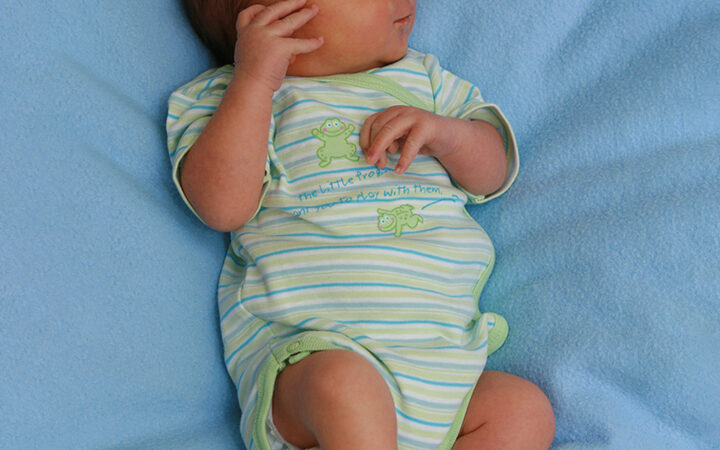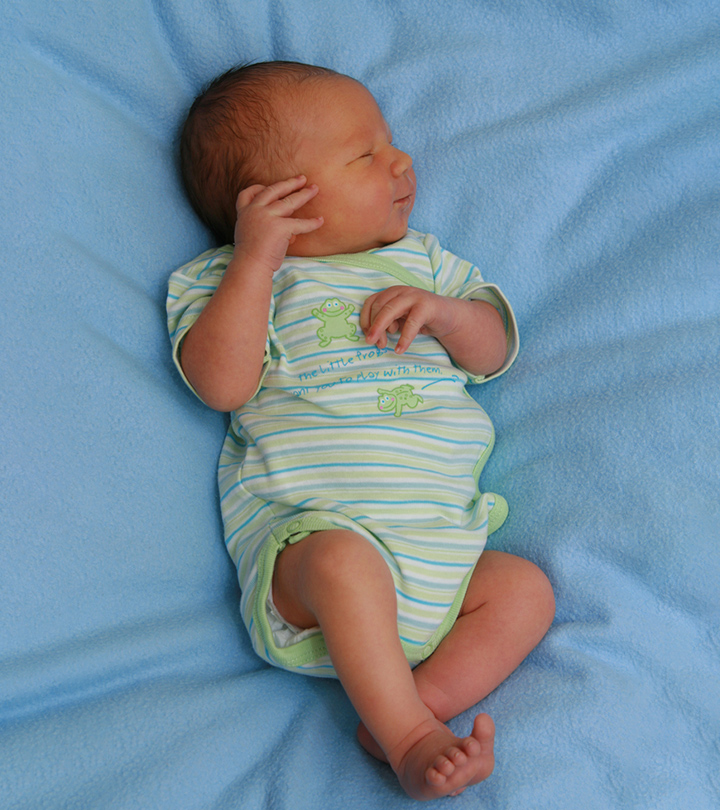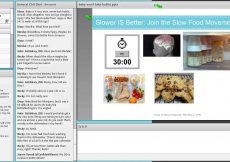Jaundice is a condition that leads to the yellowing of the skin and eyes. It is common in both babies and adults. However, newborn jaundice might cause concern in parents. Jaundice in your baby occurs mostly due to the overproduction of a pigment called bilirubin in their body (1). The increased amount of bilirubin is mainly due to the breakdown of the extra red blood cells present in the body before birth. Read about the types, symptoms, risk factors, and treatment for newborn jaundice.
How Serious Is Jaundice In A Newborn?
Bilirubin levels in a newborn’s body are usually high for the first few weeks after birth. Therefore, seeing the symptoms of jaundice are common. However, if the bilirubin levels continue to remain high or rise further even after the first few weeks, it might make the baby prone to brain damage (2). Thus, it is important to monitor your baby properly throughout this period and inform your healthcare provider immediately if you have any concerns.
What Are The Types Of Newborn Jaundice?
Jaundice in newborns is mainly divided into four major subtypes (3).
- Physiological jaundice: It is the most common type of jaundice seen in babies and does not have any serious side effects. The bilirubin levels usually peak between the fifth and seventh day after birth and disappear by the time the baby is about two weeks of age.
- Pathological jaundice: This type of jaundice occurs within the first 24 hours after birth and is characterized by peaking bilirubin levels higher than the normal range and lasting for more than two weeks. Pathological jaundice may also be sometimes accompanied by dark urine in babies.
- Breastfed jaundice: This type of jaundice only occurs in breastfed babies. It usually occurs within 24-72 hours after birth and lasts for about three weeks. The bilirubin levels peak between five and 15 days after birth.
- Nuclear jaundice: This is the rarest type of jaundice seen in babies. In this case, bilirubin gets accumulated in the blood in surplus amounts, causing cerebral lesions.
What Are The Symptoms Of Jaundice In Newborns?
The main symptoms of jaundice in newborns are the yellowing of the skin and the eyes’ white areas (sclera). The other common symptoms of jaundice can include (4):
- Fever
- Darker than normal urine
- Pain near the abdominal area
- Loss of appetite
- Light or pale-colored poop
What Are The Complications Of Newborn Jaundice?
If jaundice’s symptoms are left untreated for long, it might lead to a condition called kernicterus. It occurs due to the alarmingly high bilirubin levels in the blood that adversely affects the brain (5). Furthermore, babies, who have recovered from jaundice, are prone to disorders in movement and balance, hearing and speech impairment, and in rare cases, death. Thus, it is important to treat jaundice at the earliest to prevent further complications (6).
How Is Newborn Jaundice Diagnosed?
Higher levels of bilirubin in newborns can be diagnosed in the following ways.
- Performing a blood test
- Checking the skin and eye color for signs of yellowness
- Checking for other signs of jaundice
The American Academy of Pediatrics (AAP) suggests that the bilirubin levels of all newborn babies should be checked along with other signs and symptoms of jaundice before discharging them from the hospital (7).
How To Treat Jaundice In Newborns?
In most babies, treatment of jaundice is not mandatory as the levels of bilirubin are not that high and usually get better within a week or two. However, if the symptoms do not go away and the bilirubin levels continue to rise, urgent treatment is required. Some treatment measures that help to cure jaundice in newborns are (4):
- Phototherapy: Phototherapy is a treatment through exposure to a special kind of light. Exposure to this light helps reduce bilirubin levels by a process called photo-oxidation. Photo-oxidation is when extra oxygen is added to the bilirubin that helps it dissolve easily in the blood.
- Exchange transfusion: Excess bilirubin levels in the blood may sometimes not respond well to phototherapy. In such rare cases, the baby will need a complete transfusion of blood. The symptoms will significantly decrease since the transfused blood or new blood does not contain bilirubin.
Are There Home Remedies For Newborn Jaundice?
You may try some home remedies to reduce jaundice symptoms. However, it is important to consult your doctor before going forward with any remedies.
- Bask your baby in the morning sunlight coming from a window’s glass pane. The baby should be undressed for maximum skin exposure to sunlight, and the ambient temperature must be comfortable. Never expose a newborn to direct sunlight since it may lead to sunburns.
- Breastfeed your baby often, about 8-12 times a day. Although breastfeeding is associated with jaundice, there is no need to stop breastfeeding unless suggested by the doctor. Frequent breastfeeding may help bring down the bilirubin levels.
When To See A Doctor?
If you notice the following symptoms in your baby, it may indicate the worsening of jaundice, and you must consult a doctor (8) (9).
- Signs of weakness
- Reduced frequency of urine
- Low body temperature
- Skin color changes to deeper shades of yellow or orange
- Jaundice has reached the legs
- Excess sleepiness and lethargy
Frequently Asked Questions
1. What should a mother eat when the baby has jaundice?
A mother should follow a healthy balanced diet if their breastfed baby has jaundice. You may consult a certified dietitian to have a diet plan best suited to your needs.
2. What is the major risk factor for jaundice in newborns?
Premature or preterm babies have a higher risk of developing jaundice after birth than babies born at full term.
3. Can infant jaundice be prevented?
Feeding your baby frequently, especially during the first few hours after birth, may reduce the risk of newborn jaundice.
Newborn jaundice is a common occurrence and often resolves on its own in a couple of weeks. Yellowing of skin and the whites of the eyes are the most notable symptoms of the illness. You must continue to breastfeed the baby as usual and watch out for any worsening signs of jaundice. Treatment is often needed, yet phototherapy could benefit the baby, and blood transfusion is rarely needed. Frequent feeding during the first few hours of birth may prevent newborn jaundice or the worsening of its symptoms.
References:
MomJunction’s articles are written after analyzing the research works of expert authors and institutions. Our references consist of resources established by authorities in their respective fields. You can learn more about the authenticity of the information we present in our editorial policy.
The following two tabs change content below.





































Definitely believe that which you stated. Your favorite justification seemed to be on the net the easiest thing to be aware of. I say to you, I certainly get irked while people consider worries that they just don’t know about. You managed to hit the nail upon the top and defined out the whole thing without having side-effects , people could take a signal. Will probably be back to get more. Thanks